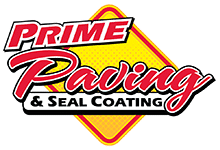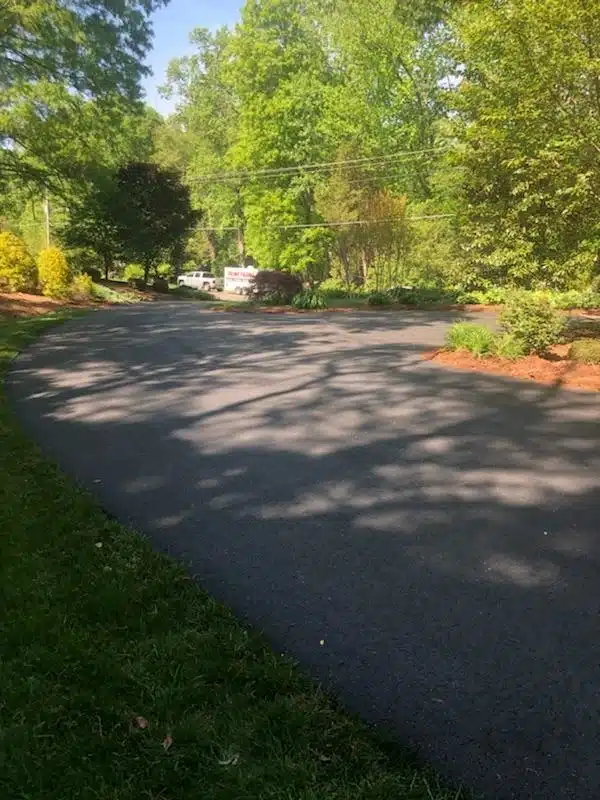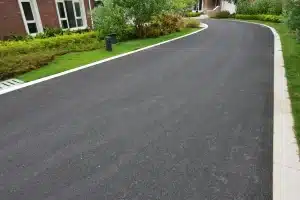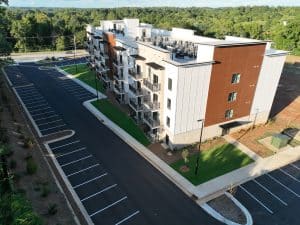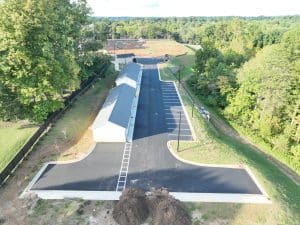What Are the Benefits of Asphalt Sealcoating?
Most people don’t think about the asphalt that they walk on, or which they drive their vehicles over each day, partly because it seems so sturdy that it’s just one of those reliable aspects of life which we take for granted. However, there are all kinds of ways that asphalt can be damaged, and that makes it highly advisable to undertake sealcoating periodically, so as to minimize the possibility of damaging the surface. Here are some of the reasons that sealcoating can be so valuable to an asphalt surface, and can help to prolong its useful service life.
Protection from sunlight
When asphalt is not protected from the sun, the ultraviolet light in those sunrays can work to break down the binding agent and the aggregate which are a major component of asphalt. Sealcoating offers significant protection from these ultraviolet rays, and will resist the powerful drying and baking action which the sun exerts on all surfaces it touches. When you come across one of those desert highways which looks cracked and faded, it has probably been exposed to months or even years of powerful sunshine, without having the benefit of life-giving sealcoating.
Promotes longevity
Asphalt has a shorter lifespan than concrete does, and it will also be more subject to weathering action from natural elements. That means it’s much more prone to be damaged by natural forces and from all the vehicles which drive over it, some of which are extremely heavy trucks and other vehicles. When a good sealcoating is applied to an asphalt surface, it can add significant longevity to the lifespan of an asphalt surface, so that it will provide years more service before needing to be replaced. Any parking lot, driveway, or roadway which receives a good sealcoating periodically will be able to survive the ravages of both nature and man-made causes for a longer period of time. Much of the damage which would otherwise accrue to the asphalt can be prevented by a good sealcoating, and that makes it highly desirable in terms of extending your investment in an asphalt surface.
Protection from moisture
Water seems so soft and harmless that most of us never think about the damage it can do, unless we see a news story about a powerful rainstorm or flooding of a low-lying area. Water can do a great deal of damage to an asphalt surface, especially in areas where the temperature dips below freezing frequently. In areas like this, water can easily work its way beneath the surface of asphalt, and then cause expansion as it transforms into ice. This in turn, will promote cracking of the asphalt and disrupt the integrity of the asphalt surface. Water can be very damaging to asphalt even when it’s not going through freezing and thawing cycles. If you live in a climate where rainfall is fairly frequent, asphalt can be eroded by the natural flowing action of water, and if you have really heavy rainfalls, it can also work its way underneath the surface. When this happens, it’s entirely possible that you could lose the underlying gravel and base rock, and this will always result in major damage.
Helps retain color
Everyone has seen roads which have become faded, worn, and even cracked, after having been subjected to years of weathering and supporting all kinds of vehicles on the road. Even without a great deal of damage being done, asphalt can definitely acquire a faded look over a period of time, and that will detract from its natural appearance. Sealcoating road surfaces or driveways will allow them to look blacker and retain their appealing look for a much longer time period. Even older driveways and roadways can have their appearance enhanced by periodic sealcoating, and that will make it look much better than any dusty old concrete surface.
